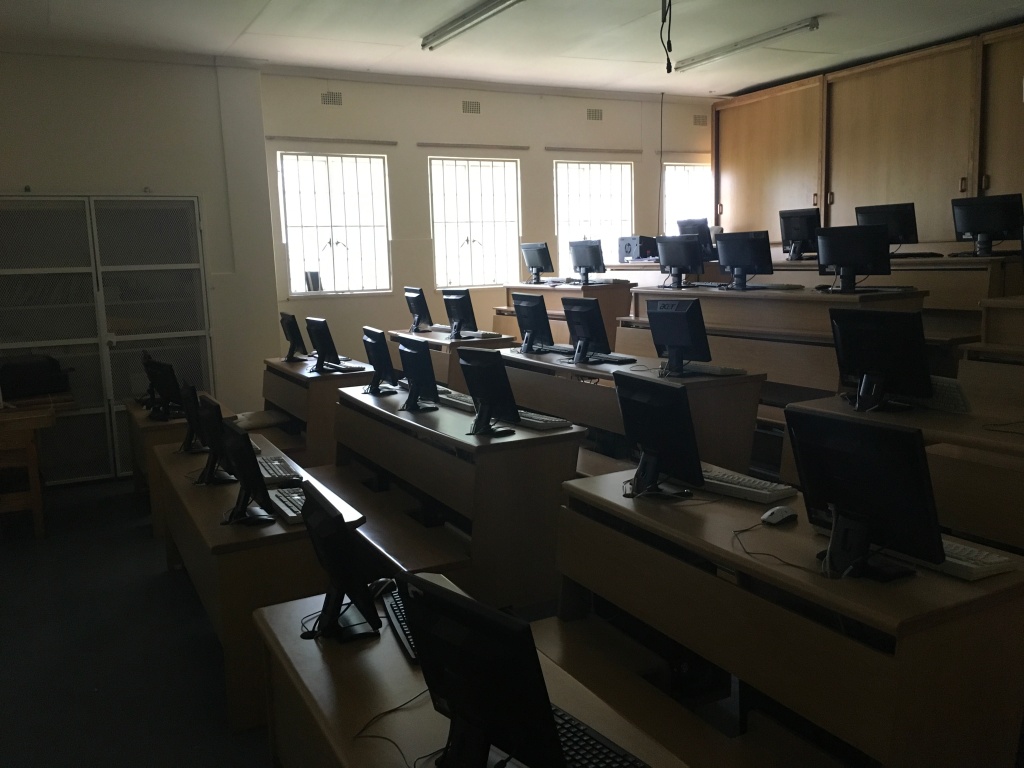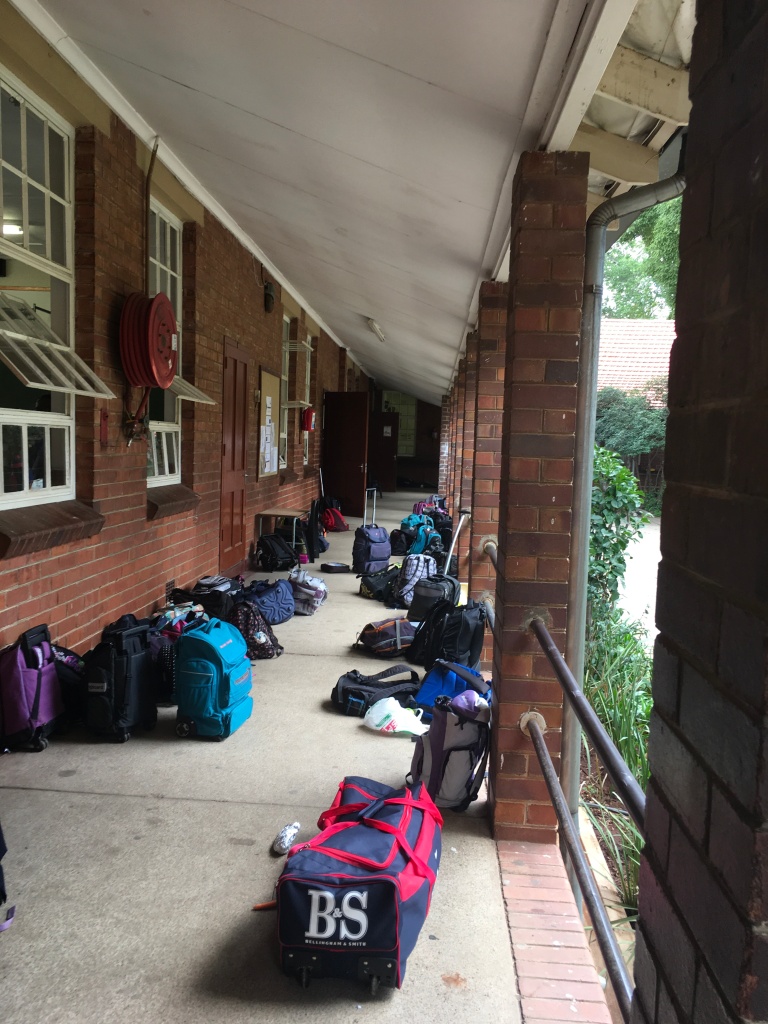In this week’s post, Chikodi Onyemerela and Branham Anamon share their view of the coronavirus outbreak and school closures in Ghana. Onyemerela is the Director of Programmes and Partnerships and Anamon is Operation Manager, Education and Society both for British Council (Ghana).
This post is the tenth in a series that includes views from Chile, Japan, the Netherlands, Scotland, Liberia, Pakistan, Australia, Canada, and China. The “A view from…” series editors are IEN’s Thomas Hatch and Karen Edge, Reader/Associate Professor in Educational Leadership at University College London’s Institute of Education.
IEN: What’s happening with you and your family?
Onyemerela: My family members are in Nigeria and I am based in Accra, Ghana. We are doing well. We are using more virtual means to keep in contact daily. There is higher pressure on my wife at home as she has to do a lot on her own with 4 kids… 24/7…without help and it adds up.
Anamon: I am living alone in Kumasi and keeping up with work. I am speaking with friends around the world and watching a lot of Netflix. It feels like time has been running so fast during the lockdown
IEN: What’s happening with education/learning in your community?
Onyemerela & Anamon: As the government in Ghana is grappling with COVID-19 virus, all levels of education are closed introducing a new paradigm into the school system. Following the outbreak of COVID-19 in Ghana, the national government announced the closure of schools and other social and religious gathering on the 16th of March, 2020. Subsequently, to ensure that learning is taking place during the period of closure, the government has setup Ghana Learning TV and Radio as well as what it has called iCampus to house digital resources for students and teachers. As of mid-June, there has been a partial reopening for students in their final years of junior, senior and university programs to assist them in preparation for exams. Even though the government has made sure all schools are linked to a health centre, there has been a mixed reaction from parents and guardians about PPE for kids and following some cases of COVID -19 recorded in some schools.
At the British Council, we work within the various sectors of education including higher, vocational, secondary and primary education. Our three priorities continue to be working in partnership with the education authorities in Ghana on 1) engagement at policy level 2) capacity building for teachers and school leaders; and, 3) professional partnerships and networks for practitioners. Following the advent of COVID-19, activities in these three areas have been migrated to online platforms often in the form of webinars. Our professional development offer for teachers and school leaders has been on building their capacity to deliver effective teaching and learning and the integration of the six core skills in their teaching methods as contained in Ghana’s National Pre-Tertiary Education Curriculum Framework. During this period of the pandemic, this capacity building programme has been delivered through series of webinars for cohorts of teachers and through short videos on social and traditional media. A series of topical webinars have also been organised for policy makers in respective areas, including Progression in core skills, encouraging instructional leadership, building inclusive education systems and the role of research in creating a curriculum. Similar to many countries of Africa, there has been the challenge of stable internet and reaching teachers and school leaders in low resourced areas. We have developed a series of radio, television and nuggets to support teachers and school leaders through these different access options.

IEN: What do you/your community need help with?
Onyemerela and Anamon: Following the closure of schools and setting up of alternative learning platforms by the government, community access of these resources is disproportionate across the country depending on accessibility to various infrastructures including internet, television and radio programmes. Mobile penetration and capacity to afford the required internet data for these online resources and smart phones are limited. It is causing what might be termed as the learning divide. Electricity is also a challenge for some rural communities which results in limited access to the Ghana Learning TV and Radio put together by the government. Other challenges include families who need their children to work on their family business or who have to work while trying to support students learning at home.
IEN: What resources/links/supports have you found most useful?
Onyemerela: Over the years, the British Council has always had a lot of online resources for the professional development of teachers, school leaders, learners and parents. These resources are now being contextualised and adapted to radio and television broadcast and also mapped to the national curriculum, while other development partners have provided Ghana government with various subject specific content the British Council has uniquely provided resources/content for teachers and School Leaders’ professional development and that has been most useful. There has been a campaign by the government to prevent the psychosocial issue surrounding COVID-19 to protect survivors of the pandemic so they can go to back to school and study effectively. The government is very serious about this.
Anamon: The Connecting Classrooms programme in Ghana is known for its support to basic and secondary education systems and training of teachers and leaders. There are now more online resources for kids and content to support international learning as well. Between April and June 2020, we engaged about 70 students from three regions of Ghana (Greater Accra, Eastern and Ashanti Regions) to learn with their peers (about 500 of them) from other countries of the world. The programme (Christened Global Conversation), which was co-implemented with the Economist Foundation helped these students to learn and share their views virtually on climate change and how it affects communities. The successful execution of this event shows that blended learning is possible in Ghana’s public-school system.

IEN: What are you reading, watching, listening to that you would recommend to others?
Onyemerela: COVID19 is a phenomenon that everyone is grappling with, to understand how to live and work with it. There are opportunities for learning even if you are stuck in a room all alone. Because digital learning is the new normal and I have a background in Digital Marketing, I have been reading digital resources for enhancing learning and I would recommend the same for teachers to enhance their digital literacy and delivery.
COVID19 is a phenomenon that everyone is grappling with, to understand how to live and work with it. There are opportunities for learning even if you are stuck in a room all alone.
Anamon: I appreciate knowledge and am curious about how the world operates, so naturally I do love reading books, articles and novels as well as watching drama series, documentaries and docuseries on issues such as political history, global economy, criminology, Religion, Self-help etc.. I have already finished reading four books during lockdown: Becoming by Michelle Obama; Talking to strangers by Malcolm Gladwell; Why nations fail by Daron Acemoglu and James Robinson; and Outliers by Malcolm Gladwell. In terms of documentaries/drama series I would recommend Greenleaf, 13th, Immigration Nation, when they see us, Trial by the Media, Breaking Bad, Big Bang Theory etc. In addition to this I was very excited about the resumption of football especially the English Premier League for which my beloved Manchester United, against all odds, qualified for the UEFA Champions league next season.
IEN: What have you found most inspiring?
Anamon: COVID19 offers opportunities for introspections and reflections. I am bombarded with learning content. Opportunities to recharge and repackage yourself and explore opportunities. My main focus has been mental health. Hard to keep mental health a priority when you feel bored. I encourage people to call someone. Working remotely – it is hard to believe what we can live with. There are opportunities to reconnect with old friends, check up on other people and offer support.
During the lockdown, the Black Lives Matter movement has moved from the house to the street. Companies are talking about it. There has been a reaction from different stakeholders. Having experienced racism in the EU and the US, I do want to fight it. Staying silent won’t help. As the co-lead of Equality, Diversity and Inclusion (EDI) in British Council Ghana, I am leading staff discussions on BLM and racism. It is inspiring to share and listen to experiences of others.
Onyemerela: The Ghana government has done well to provide free education to senior high schools and are doing well to manage the current capacity of primary and secondary schools. I am really interested in learning how effective learning can take place virtually. Work has been generally challenging under the current circumstance. It is encouraging to see how life is going ahead despite the limitations. We are not easily broken.Even though working from home (WFH) is a common practice, it is actually my first time to be WFH. It has its ups and downs. You want to reach out and talk to colleagues, but you are not able to do that. We have the digital tools now to deliver programmes via Microsoft teams. There are so many opportunities to do things differently using digital tools which actually reduces our cost of delivery.













